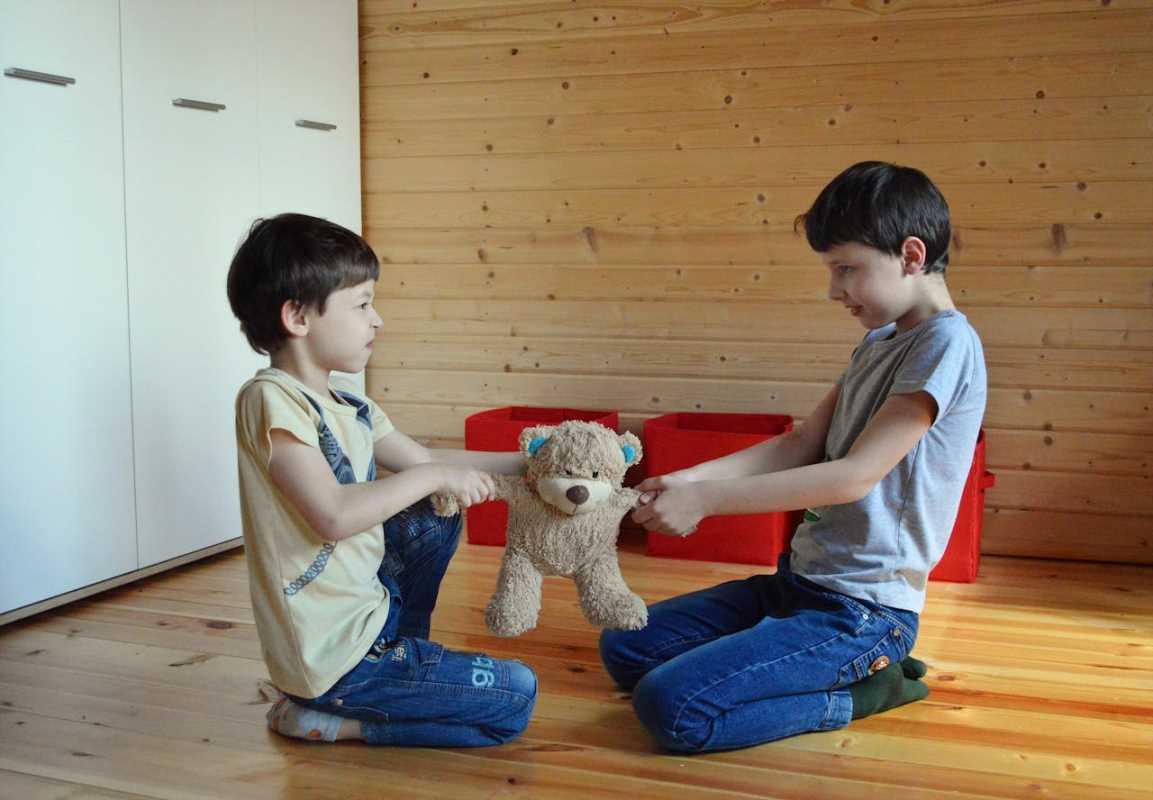Mistakes are part of being human, but the emotional and financial stakes can feel overwhelming when errors affect your family. Handling these situations with love and logic can help preserve relationships, guide learning, and build trust during tough times. This approach combines compassion and accountability, allowing families to move forward without harboring resentment. Whether it's a financial misstep, a risky decision, or a lapse in judgment, navigating errors with a clear plan promotes growth and minimizes future harm. This article explores practical strategies to balance empathy and reason, ensuring family bonds remain strong while addressing costly mistakes effectively.
Balancing Emotional Responses
Addressing family mistakes often stirs up powerful emotions like frustration, disappointment, or even anger. Still, it's crucial to respond in ways that create a positive learning environment rather than escalate tensions. Expressing love and care does not mean ignoring the problem; it means leading with kindness while staying firm on accountability.
- Pause and Reflect: Before reacting, take a moment to compose yourself. Responses formed in the heat of the moment can blur the line between constructive and destructive communication. For example, if a family member's mistake resulted in a large expense, pause to consider how you can convey your concerns calmly.
- Acknowledge Feelings: Recognize and validate the emotions everyone might be experiencing. Say something like, "I understand this situation is hard for all of us," to show empathy and encourage open dialogue.
- Stay Solution-Oriented: Shift focus from blaming to finding a resolution. Aim to ask questions like, "How can we address this together?" This approach models positive problem-solving skills for young and old family members alike.
By balancing love with logic, you can help defuse emotional reactions and maintain a supportive atmosphere that encourages accountability.
Setting Boundaries with Compassion
Boundaries play a critical role in preventing future mistakes and ensuring mutual respect. At the same time, implementing them requires tact to avoid alienating loved ones.
- Explain Consequences Clearly: Ensure family members understand the impact of their actions. For example, if an adolescent overspends their allowance and asks for more, clarify why you cannot provide additional funds. Frame it constructively: "I need to stick to our agreement so we can manage our household budget responsibly."
- Focus on Consistency: Enforce boundaries fairly and consistently to build trust. Allowing exceptions frequently undermines their purpose and creates confusion. For instance, if a rule about borrowing possessions exists, apply it equally to all family members.
- Communicate Expectations: Lay out what behaviors are acceptable and what outcomes will follow when boundaries are crossed. Using open-ended statements such as, "Let's talk about how we can avoid similar issues next time," fosters cooperation.
By combining clarity and compassion, boundaries can be positioned as tools to guide and protect rather than punish.
Teaching Accountability
Accountability ensures family members take ownership of their mistakes while minimizing recurring issues. Teaching accountability involves both setting an example and creating opportunities for learning.
- Model Responsible Behavior: Set the tone by owning up to your missteps. Sharing examples of a time you corrected a financial or emotional mistake shows that learning is a lifelong process. This transparency fosters a culture of self-reflection within the family.
- Encourage Problem-Solving: Guide the person who made the mistake toward identifying solutions on their own. For instance, if a young adult missed paying a bill, involve them in setting up reminders or budgeting practices. By doing so, you empower them to take proactive measures.
- Celebrate Growth: Acknowledge progress, no matter how small. Saying, "I’m proud of how you took responsibility for fixing this" reinforces positive behavior and motivates further improvement.
Teaching accountability doesn’t just repair immediate issues—it builds resilience and critical thinking skills that benefit everyone in the long term.
Learning Through Honest Conversations
Family mistakes often lead to lingering misunderstandings when communication is unclear or withheld. Open and honest discussions strengthen connections and create a shared path forward.
- Create a Safe Space: Make it clear that the goal is not to assign blame but to learn. Using phrases such as, "I want to understand what happened so we can work together," encourages open sharing without fear of judgment.
- Ask Questions That Prompt Insight: Instead of accusing, ask questions like, "What do you think led to this situation?" These questions encourage reflection while offering perspective on root causes.
- Establish Shared Solutions: Work together to decide on appropriate actions and preventive measures for the future. For example, if a family member struggles with sticking to budgets, involve them in planning household expenses.
Framing conversations with honesty cultivates trust, making it easier for families to recover from mistakes.
Building Resilience Together
Resilience grows when families learn to face mistakes together with understanding and determination. Approach challenges as opportunities to grow stronger rather than setbacks that divide.
- Focus on Growth Opportunities: Highlight lessons learned from each experience. For instance, if a sibling borrows money irresponsibly, collaborate toward better financial habits instead of criticizing past behavior.
- Strengthen Collaboration: Encourage teamwork in resolving issues, reminding everyone that family is about mutual support. Statements like, "We all have a role to play in overcoming challenges," emphasize collective responsibility.
- Practice Forgiveness: Mistakes do not define us, and forgiveness allows everyone to move on. Achieving closure will reduce tensions that might resurface later.
The ability to bounce back as a unit fosters a supportive environment where mistakes are viewed as steppingstones rather than failures.
Managing love and logic in the face of costly family mistakes requires patience, empathy, and a focus on growth. By balancing emotional care, setting clear boundaries, and fostering accountability, families can overcome challenges while maintaining trust.
 (Image source: Midjourney)
(Image source: Midjourney) 





